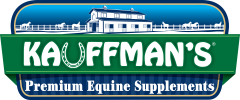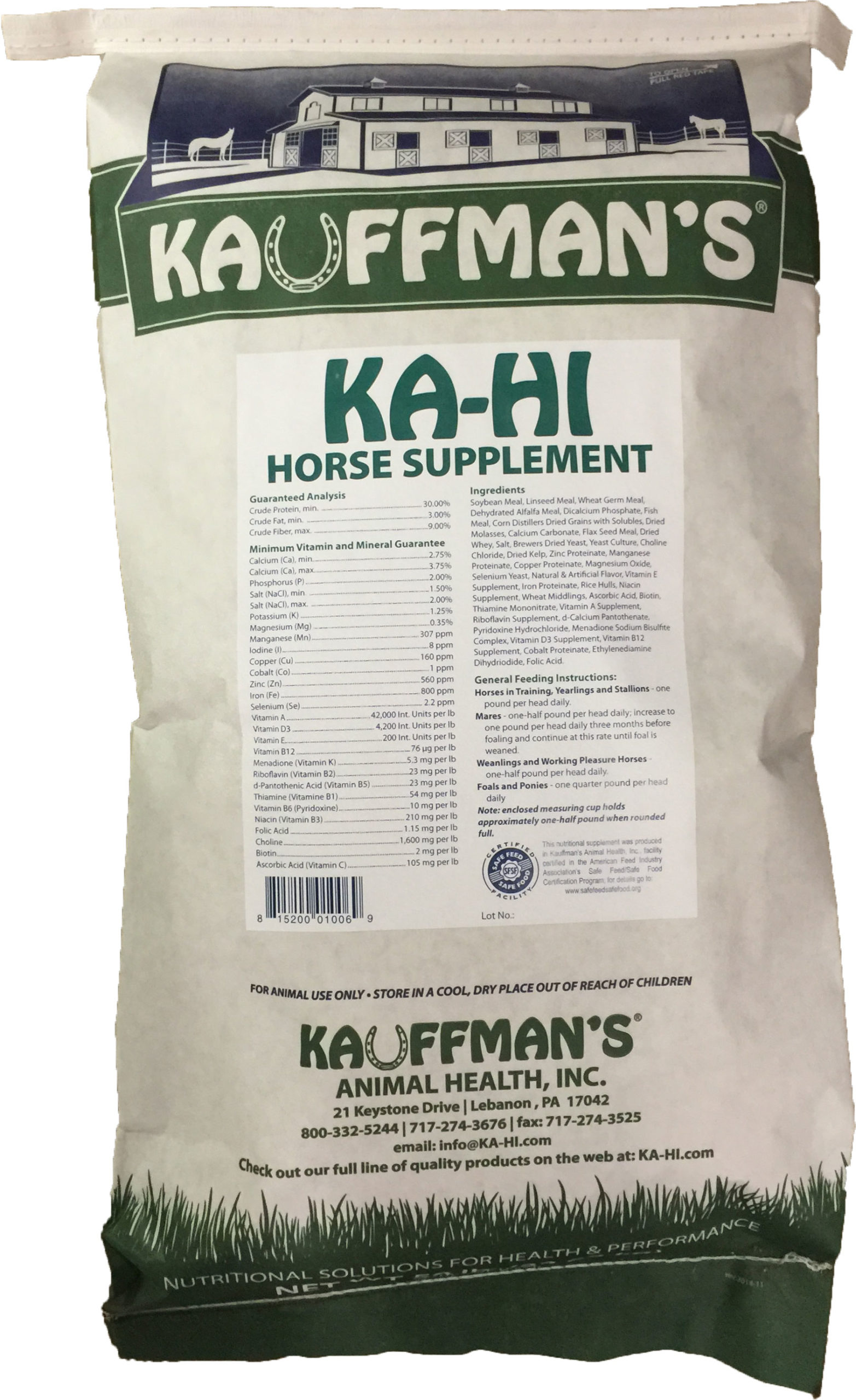Product Details
Vitamins and Minerals Essential to Equine Health
Although horses need more vitamins than minerals, it is essential to their physical and cognitive health that they receive adequate amounts of certain kinds of minerals. These minerals include sulfur, magnesium, calcium, sodium, phosphorous, potassium and chloride. Horse also need trace minerals such as zinc, iron, manganese, copper, cobalt or selenium.
Deficiencies in minerals may lead to the following health issues in horses:
- Hyperparathyroidism
- Bone brittleness in younger horses
- Poor healing of fractures
- Softening/swelling of facial bones
- Pica (consumption of soil)
- Anorexia
- Anemia
- Cardiac arrhythmias
- Muscle tremors
- Alopecia
- White muscle disease
Mineral requirements depend on a horse’s age, weight, activity level and current physical condition (lactating or pregnant horses will need additional minerals). Since mineral content in forage material varies significantly according to the mineral content of the soil, supplementing the equine diet with horse vitamins and materials may be necessary.
Vitamins for Horses Benefits
Vitamins needed by horses to maintain optimal health are divided into water-soluble and fat-soluble variants. Vitamins C and B-complex are water-soluble and vitamins K, E, A and D are fat-soluble. Horses deficient in fat-soluble vitamins may develop the following conditions:
- Susceptibility to upper respiratory infections/pneumonia
- Fickle or lack of appetite
- Reduced night vision (nyctalopia)
- Excessive tear production (lacrimation)
- Progressive weakness
- Reproductive impairment
B-complex vitamins (fat-soluble) help convert carbohydrates into glucose needed for energy and stamina. These vitamins also metabolize protein and fatty acids while promoting eye, skin, hair, liver and nervous system health. Riboflavin (vitamin B2) is especially important for building muscle mass and strength. Vitamin B2 contributes to the oxidation of fatty acids, glucose metabolism and the facilitation of hydrogen as it passes through the Krebs cycle.
Vitamin B3 is indispensable for carbohydrate, fat and protein metabolism — all of which is necessary for creating the large stores of energy required by sport horses. Vitamin B5 (pantothenic acid) produces antibodies that fight disease and infection, absorb nutrients and assists in vitamin D production. In addition, vitamin B5 participates in the synthesis of cortisone, hemoglobin, lipids and neurotransmitters.
Horse Vitamins and Minerals from KAUFFMAN’S® Premium Equine
Enriched with minerals, vitamins and proteins, KAUFFMAN’S® KA-HI Horse Supplement can be offered as a complete diet for easy keepers or as a supplement to forage-based diets to help build muscle mass for performance horses, miniatures and broodmares. KA-HI Horse Supplement should be provided at a rate of ¼ to one pound per horse each day, according to the horse’s activity level and needs.
Find out more about the benefits of supplements for equine diets with vitamins and minerals for horses by calling Daniel Baum Company, Inc. today!
Your Questions Answered
Soybean Meal, Linseed Meal, Wheat Germ Meal, Dehydrated Alfalfa Meal, Dicalcium Phosphate, Fish Meal, Corn Distillers Dried Grains with Solubles, Dried Molasses, Flaxseed Meal, Calcium Carbonate, Dried Whey, Salt, Brewers Dried Yeast, Yeast Culture, Choline Chloride, Dried Kelp, Zinc Proteinate, Manganese Proteinate, Copper Proteinate, Magnesium Oxide, Selenium Yeast, Natural & Artificial Flavor, Vitamin E, Supplement, Rice Hulls, Iron Proteinate, Niacin Supplement, Ascorbic Acid, Biotin, Mixed Tocopherols (a preservative), Rosemary, Thiamine Mononitrate, Vitamin A Supplement, Riboflavin Supplement, d-Calcium Pantothenate, Pyridoxine Hydrochloride, Menadione Sodium Bisulfate Complex, Vitamin D3 Supplement, Vitamin B12 Supplement, Cobalt Proteinate, Ethylenediamine Dihydriodide, Folic Acid
Horses in Training, Yearlings and Stallions: 1 pound per head daily.
Mares: 1/2 pound per head daily; increase to 1 pound per head daily three months before foaling and continue at this rate until foal is weaned.
Weanlings and Working Pleasure Horses: 1/2 pound per head daily.
Foals and Ponies: 1/4 pound per head daily.
| Guaranteed Analysis |
|
| Crude Protein, min. | 30.00% |
| Crude Fat, min. | 3.00% |
| Crude Fiber, max. | 9.00% |
| Calcium (CA), min. | 2.75% |
| Calcium (CA), max. | 3.75% |
| Phosphorus (P) | 2.00% |
| Salt (NaCl), min. | 1.50% |
| Salt (NaCl), max. | 2.00% |
| Potassium (K) | 1.25% |
| Magnesium (Mg) | 0.35% |
| Manganese (Mn) | 307 ppm |
| Iodine (I) | 8 ppm |
| Copper (Cu) | 160 ppm |
| Cobalt (Co) | 1 ppm |
| Zinc (Zn) | 560 ppm |
| Iron (Fe) | 800 ppm |
| Selenium (Se) | 2.2 ppm |
| Vitamin A | 42,000 IU/lb |
| Vitamin D3 | 4,200 IU/lb |
| Vitamin E | 200 IU/lb |
| Vitamin B12 | 76 µg/lb |
| Menadione (Vitamin K) | 5.3 mg/lb |
| Riboflavin (Vitamin B2) | 23 mg/lb |
| d-Pantothenic Acid (Vitamin B5) | 23 mg/lb |
| Thiamine (Vitamin B1) | 54 mg/lb |
| Niacin (Vitamin B3) | 210 mg/lb |
| Vitamin B6 (Pyridoxine) | 10 mg/lb |
| Folic Acid | 1.15 mg/lb |
| Choline | 1,600 mg/lb |
| Biotin | 2 mg/lb |
| Ascorbic Acid (Vitamin C) | 105 mg/lb |


Reviews
There are no reviews yet.